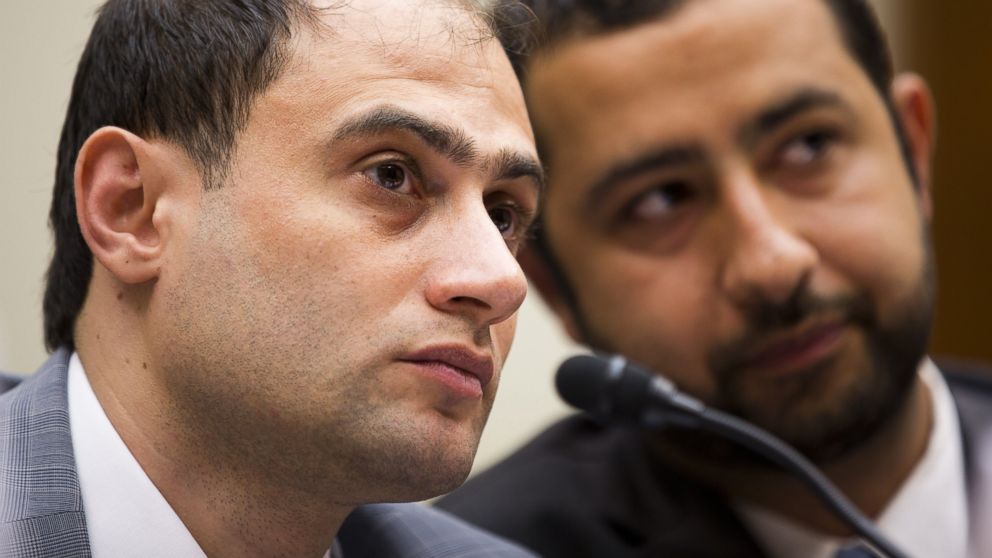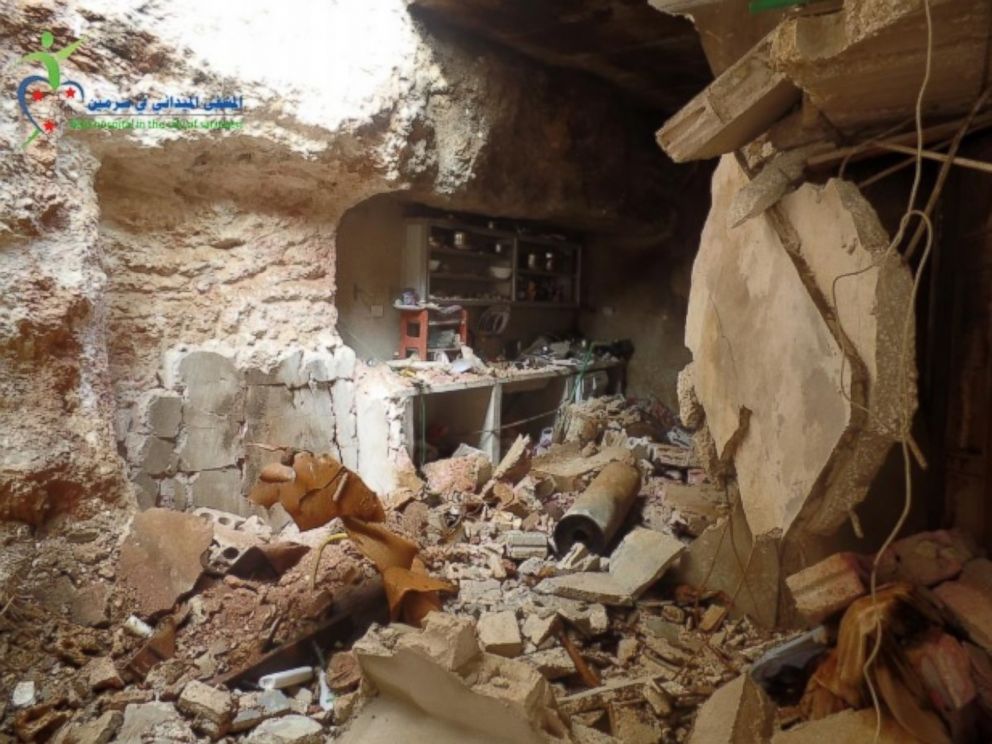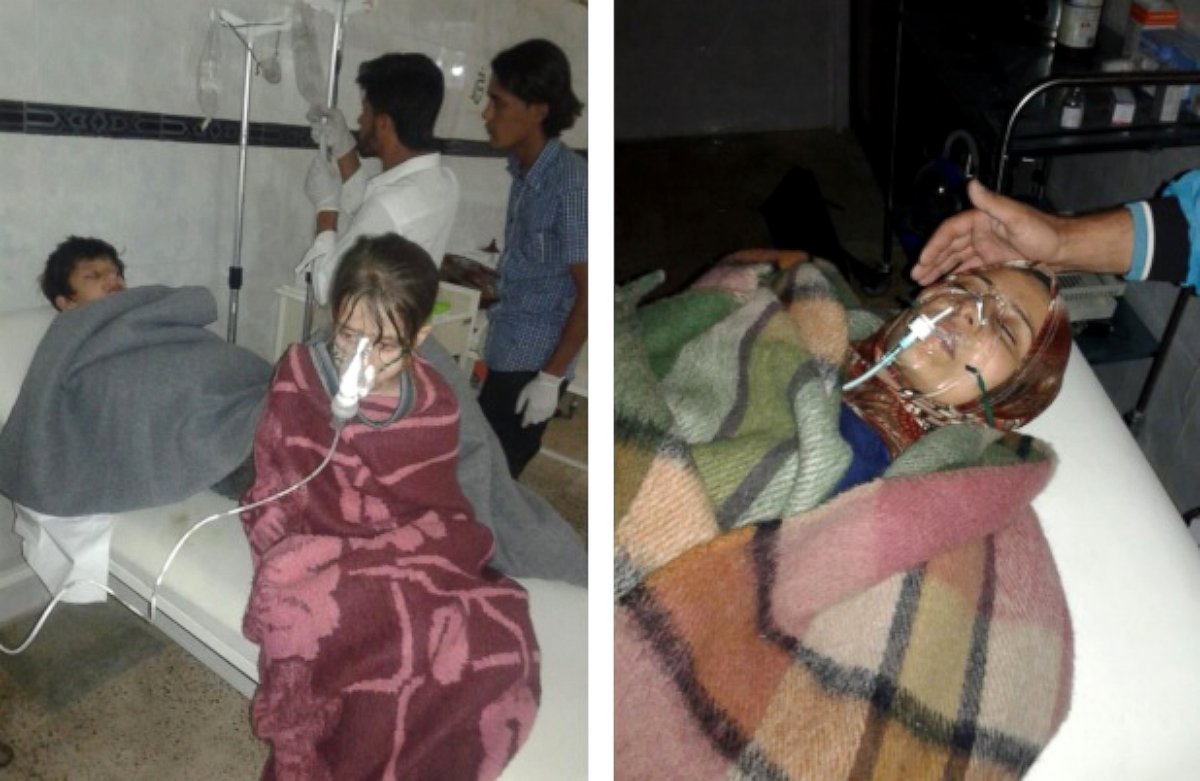Witnesses of Assad's Chlorine Warfare in Syria Issue Emotional Plea for Help From Congress
Aid Workers Decry 'Psychological Torture' of Assad's Chlorine Warfare

— -- In one of the more grim Congressional hearings this year, lawmakers Wednesday heard gruesome new evidence provided by aid workers showing the effects of Syrian President Bashar al-Assad’s use of chlorine gas against civilians.
It comes a day after Secretary of State John Kerry told reporters he was “absolutely certain” Assad’s regime was carrying out chlorine gas attacks against civilians, the most stark and explicit assignment of blame from the Obama Administration since reports of attacks surfaced in September of 2014.
Dr. Mohamed Tennari, of the Syrian American Medical Society (SAMS), told lawmakers his group has documented 31 chlorine attacks since March 16 in the region, with 580 Syrians affected and 10 killed from suffocation, including children. It was not clear how many have been killed by gas during the conflict.
“Though the chlorine-filled barrels have killed far less than barrel bombs filled with explosives and shrapnel, they have added a new type of psychological torture to the people of Idlib,” Tennari said to the committee, speaking through a translator.
Tennari then showed a 40-second-long video to the members of the committee, featuring children who he attempted to treat in one of the first chlorine gas attacks in Idlib. Victims suffered redness and burning of the eyes, frothing at the mouth, and in some cases when inhaled, suffocation.
“Everything we did for them was not enough to save their lives,” Tennari said. “Their basement had become a makeshift gas chamber.”

Dr. Annie Sparrow, a pediatrician and health activist who has worked on the Syrian border since 2012, told the committee the Assad regime has only targeted civilian populations with improvised barrel bombs and chlorine gas attacks.
“I'm a doctor, and I'm very familiar with death. But I have never seen a more obscene way to kill children. I've never watched so many suffer in such an obscene manner,” Sparrow said. “Our preoccupation with ISIS is distracting us from these systematic assaults on civilian homes and neighborhoods and hospitals and schools.”

Former U.S. Ambassador to Syria Robert Ford, who resigned from his position in 2014 claiming he was no longer in a position to defend American policy with regards to the country, urged lawmakers to implore the Obama Administration to put pressure on the United Nations Security Council.
He said the body should assign an investigative team to determine official responsibility for the chlorine attacks. At issue primarily is Russia, Ford said, who provides direct support to the Assad’s regime and could potentially block any move by the council.
“I think negotiations with the Russians would be somewhat easier if the Russians understood that failing a UNSC agreement, the United States is prepared to work with a coalition of likeminded countries to act itself,” Ford said.
That action, the witnesses all agreed, would require implementing a no-fly zone over civilian-populated areas in the country or providing Syrian opposition forces with arms to prevent such attacks.



